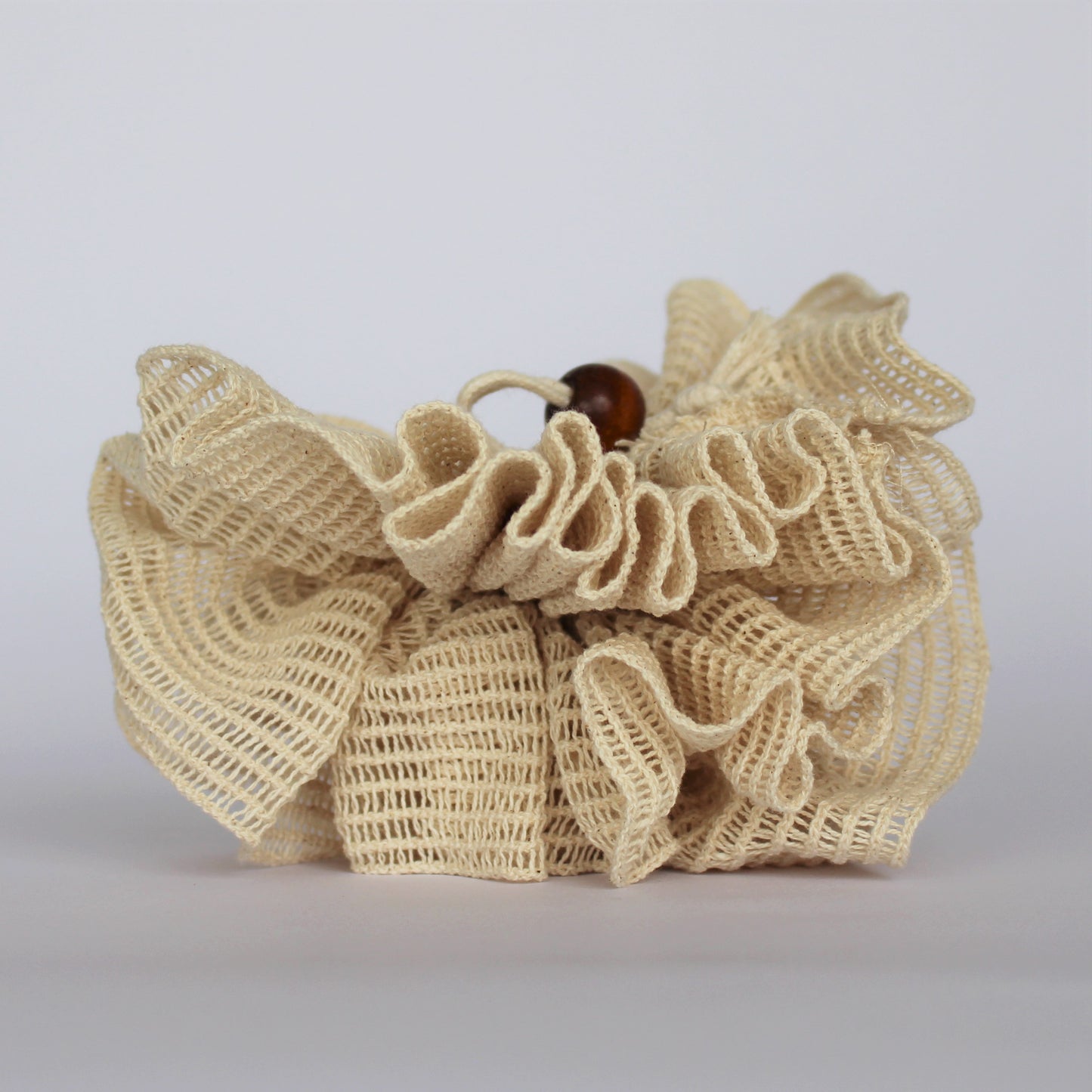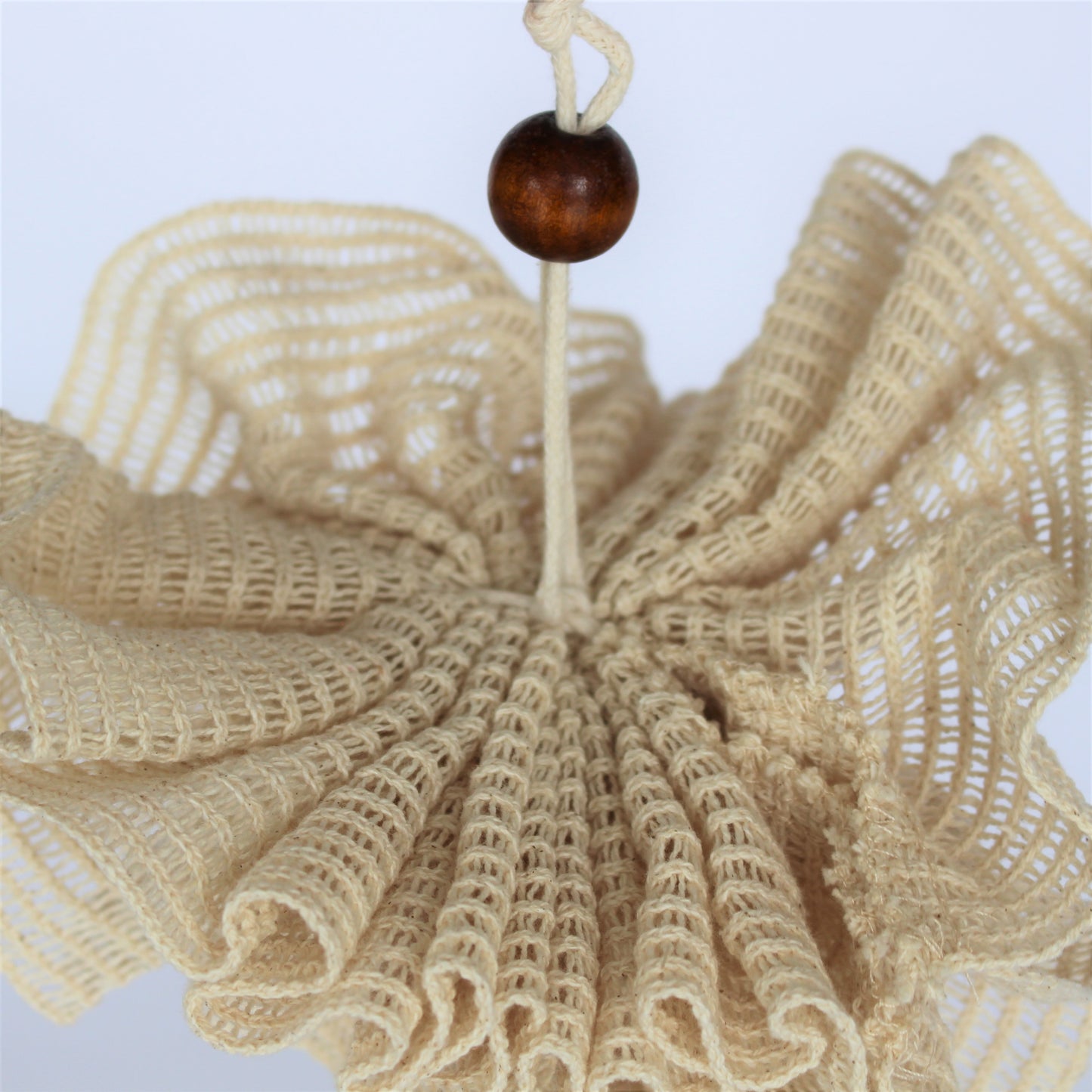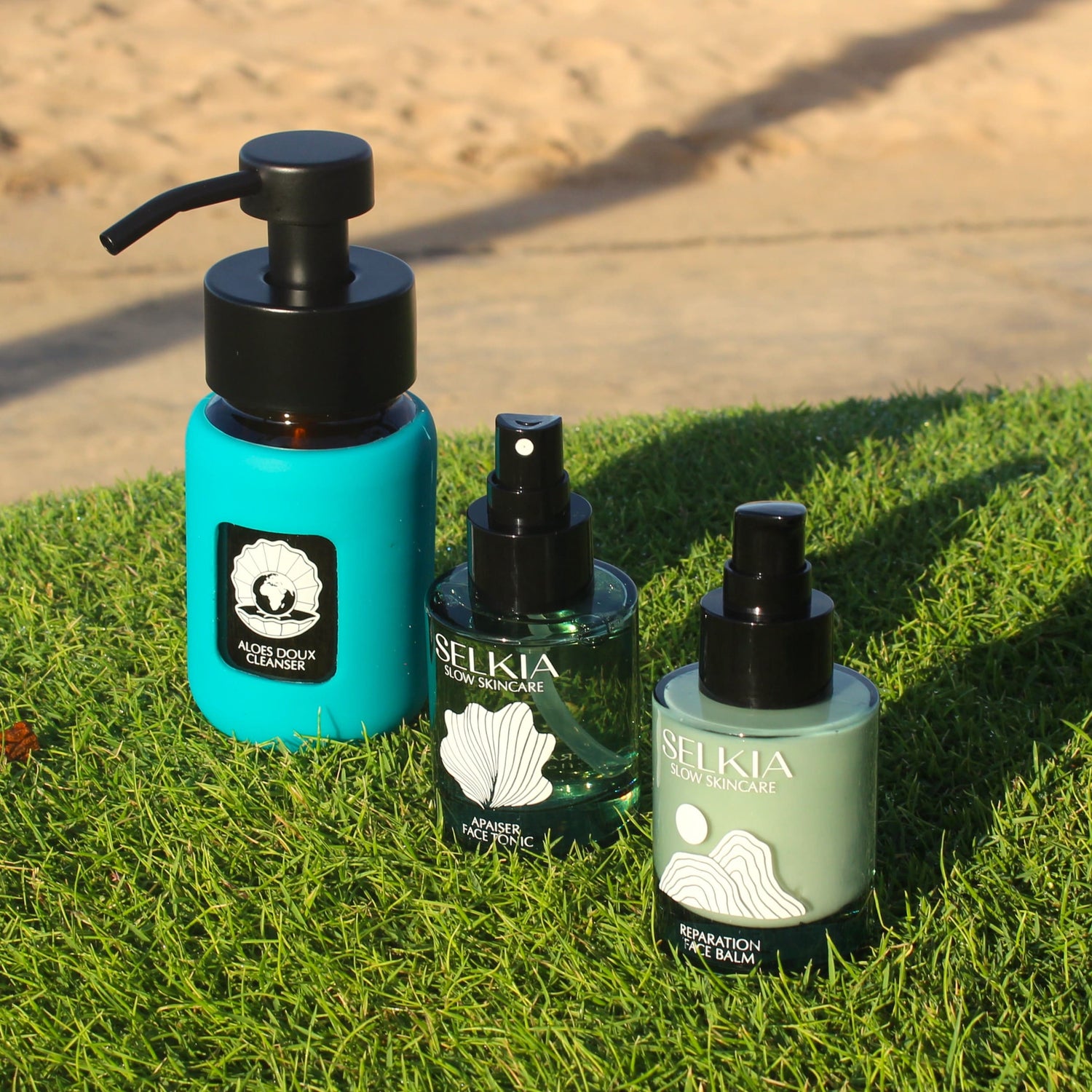Selkia Slow Skincare
Eco-friendly Pouf
Eco-friendly Pouf
Couldn't load pickup availability
Sustainable Rattan Pouf: Eco-Friendly Shower and Bath Exfoliator
Upgrade your bath routine with Selkia’s Rattan Pouf, a reusable alternative to coloured plastic mesh poufs. This pouf is made from 100% sustainable rattan & cotton, eco-friendly materials, perfect for the shower, bath, or even surfaces.
Why We Love It:
- Highly Sustainable Resource: Rattan is a renewable material that grows quickly, naturally, and without disrupting rainforest ecosystems. It also converts CO2 into clean air, contributing to environmental health.
- Gentle Exfoliation: This pouf replenishes your skin's barrier by removing dead skin cells, providing gentle exfoliation for a healthy skin renewal routine.
- Versatile Use: Pairs well with soap bars or liquid body wash. It's perfect for all skin types and can be used in the shower or bath.
- Easy to Clean: Machine or hand washable. Dries quickly when hung by the string in an airy place.
Best For: All skin types.
Eco-Friendly & Ethical:
- Plastic-Free: Made entirely from rattan, reducing plastic waste.
- Sustainable Material: Rattan is one of the quickest-growing tropical woods, renewing in 5-7 years.
- Australian-Made: Crafted with care in Australia.
Product Details:
- Size: Roughly 13cm in diameter without rope.
Cleaning Info: To clean, wash your rattan sponge in warm water with mild detergent. Pull all layers out when drying to prevent material gathering.
Directions: Put on like a glove and gently massage your body in a circular motion. Use it on its own or add soap. Rinse or use body wash to sterilize, then hang to dry when done. Replace every 2-4 months for hygiene reasons. Once done with personal use, repurpose it as a cleaning tool. Dispose of general waste or home compost, as it will decompose naturally.
Made from 100% Sustainable Rattan, Selkia's Rattan Pouf offers the best quality and eco-friendly exfoliation. Shop now and make a sustainable choice for your skincare routine!
Share



About Responsible Beauty
Responsible beauty incorporates the entire life cycle of a product, from manufacturing to end of life.
- Reduces carbon footprint
- Less need for the creation of new plastics.
- Glass and bamboo products reduce risk of product contamination.
- Recyclable products & packaging.


